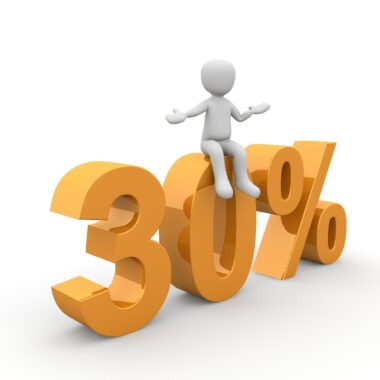Enhancing Sales Enablement through Data-Driven Marketing Techniques
In today’s competitive market, sales enablement becomes increasingly critical for companies. By integrating data-driven marketing techniques, organizations can significantly enhance their sales processes. Sales enablement utilizes tools, content, and information to help sales representatives engage with potential customers effectively. When combined with data-driven strategies, companies can tailor their approach to meet the specific needs of various customer segments. This personalization leads to increased customer satisfaction and retention rates. As the revenue generation machine of a business, sales enablement directly correlates with how effectively a sales team can perform. By leveraging analytics, companies can identify successful sales patterns, customer preferences, and buying behaviors, enabling teams to adapt their strategies appropriately. Integrating these practices allows sales teams to provide targeted content and training. Additionally, data-driven insights optimize content creation, ensuring the sales force has the materials needed to succeed. Ultimately, implementing these techniques empowers sales teams, leading to improved performance and better overall results. Companies that can harness the power of data within their marketing efforts will find themselves far ahead of their competitors in the marketplace. The future of sales enablement lies in utilizing data effectively.
Sales team members often face challenges in understanding customer needs and preferences. Data-driven marketing techniques can streamline this process significantly. When sales teams utilize data insights, they can gain a comprehensive view of their customers through detailed analytics. This holistic understanding enables sales representatives to tailor their pitches and offerings effectively, making them more relevant and appealing. By integrating data from various sources, such as CRM systems, social media, and website analytics, organizations can create customer profiles that reflect actual behavior. These profiles guide sales representatives in engaging with customers at the right time and through the right channels, increasing the chances of conversion. Additionally, equipping the sales team with personalized content based on data insights enhances their credibility and trust with clients. Ensuring that sales materials align with customer pain points creates a sense of understanding and approachability. By embedding data-driven marketing techniques into sales enablement processes, businesses cultivate a responsive sales force capable of adapting and responding swiftly to market changes. The result is a more efficient sales team that consistently meets and exceeds organization targets, generating revenue sustainably and predictably.
Content and Training Optimization
Sales enablement refers to providing sales teams with the resources needed to succeed in their roles effectively. Data-driven marketing techniques play a vital role in optimizing the content and training provided to sales representatives. By analyzing data on customer interactions, preferences, and feedback, organizations can develop training programs that address specific gaps in knowledge or skill. Moreover, content creation becomes focused and relevant to prospects, increasing engagement and improving conversion rates. For example, if data indicates that potential customers respond positively to educational materials, sales teams can prioritize creating whitepapers or webinars that deliver valuable insights. Streamlined content also promotes consistency across messaging, enabling sales teams to present the company brand cohesively. In addition, by utilizing feedback from previous sales interactions, training can continuously evolve based on real-time performance metrics. This creates an agile learning environment within sales teams, facilitating ongoing improvement. Ultimately, by aligning content strategy and training programs with data-driven insights, businesses can ensure their sales teams are well-prepared to engage clients meaningfully. The synergy between sales enablement and data analytics strengthens overall performance and drives better business outcomes.
Data-driven marketing techniques foster collaboration between sales and marketing teams, enhancing sales enablement. A close relationship between these two departments is essential for creating content that resonates with target audiences. With data insights, marketing teams can better understand the intentions and needs of potential customers, translating that information into effective sales collateral and strategies. By working hand-in-hand, sales and marketing can devise campaigns that are cohesive from inception to execution. Regular meetings and shared platforms for data analysis encourage transparency and foster a culture of collaboration. Additionally, joint performance metrics give both teams a consolidated perspective on success, paving the way for continuous refinement of strategies. When both departments are aligned around the same goals and strategies, it results in a unified message that reflects comprehensively the company’s value propositions. Enhanced communication also enables sales representatives to provide timely feedback on the quality of marketing-generated leads. This feedback mechanism helps marketing teams understand the effectiveness of their strategies and make necessary adjustments. As a result, the sales enablement process becomes more streamlined, as organizations are equipped to serve customers better and meet ever-changing market demands.
Technology Integration for Enhanced Efficiency
Technology plays a significant role in sales enablement, especially when combined with data-driven marketing techniques. Various tools and platforms exist that streamline processes and improve efficiency. Organizations must utilize the right technology to support all stages of the sales process. Automation tools can significantly reduce administrative burdens, allowing sales representatives to focus on what they do best: closing deals. Moreover, data management systems help maintain and analyze customer information, ensuring that sales teams have access to the most current data available. Companies can leverage CRM systems to manage customer relationships, track interactions, and identify potential opportunities. By utilizing technology effectively, sales teams can navigate complex customer journeys with ease. Moreover, analytics tools can provide real-time insights into sales performance and customer behaviors. Making data-driven decisions becomes less cumbersome as teams access actionable insights without delay. Embracing technological advancements not only supports sales enablement efforts but also leads to increased productivity, better accountability, and improved tracking of sales metrics. Technology, when aligned with data-driven strategies, propels sales enablement initiatives, driving greater business success and growth.
Another essential aspect of enhancing sales enablement through data-driven marketing techniques is measuring success. Organizations need to establish key performance indicators (KPIs) that effectively reflect the objectives of their sales enablement initiatives. This allows teams to assess their strategies’ effectiveness and overall impact on revenue generation. Regularly monitoring these KPIs can help identify areas needing improvement, ensuring continuous growth. Measures such as conversion rates, customer acquisition costs, and return on investment provide valuable insights into sales performance. Furthermore, tracking customer engagement metrics, such as open and click-through rates on emails, can help gauge the effectiveness of the communication strategies in place. Analyzing patterns in these metrics enables organizations to refine their approach, ultimately enhancing their ability to connect with prospects. Continuous evaluation fosters a culture of accountability and encourages a proactive attitude towards sales enablement. By leveraging data-driven insights, organizations can make informed decisions that translate into substantial returns. Ultimately, a commitment to measuring success not only guides sales strategy but also enhances collaboration across teams, driving efficiency and sustainable growth for the organization.
Future Trends in Sales Enablement
The landscape of sales enablement continually evolves, and organizations must stay ahead of emerging trends. Data-driven marketing techniques will play a central role in shaping the future of sales enablement. As technology advances, predictive analytics will become more prevalent, enabling sales teams to anticipate customer needs and preferences before they arise. Integrating artificial intelligence into sales processes can further enhance the personalization of sales strategies. The ability to analyze vast amounts of data at speed will provide sales representatives with real-time insights that drive informed decision-making. Moreover, the increasing reliance on omnichannel strategies necessitates sales enablement resources that cater to customers across multiple touchpoints. Organizations will need to adapt their sales enablement efforts to ensure that teams are equipped with the necessary tools and knowledge. Enhanced training initiatives, encompassing virtual and augmented reality, may also become commonplace, providing immersive experiences for skill development. In summary, embracing these future trends in sales enablement through data-driven marketing techniques will prepare organizations to remain competitive. By focusing on innovative methods, businesses can foster agile sales teams, capable of navigating the complexities of an ever-changing marketplace.
In conclusion, enhancing sales enablement through data-driven marketing techniques is key for organizations striving for growth in today’s business environment. By leveraging analytics, sales teams can better understand customer needs and preferences, enabling them to engage prospects effectively. The integration of technology, optimization of content, and continuous collaboration between sales and marketing creates a structured and responsive sales enablement framework. Organizations that prioritize these elements will likely see improved sales performance and substantial returns on investment. Emphasizing measurement, evaluation, and adaptation builds a culture of continuous improvement and accountability across teams. As companies embrace the future of sales enablement, staying attuned to emerging trends and integrating innovative practices will ensure long-term success. This approach empowers sales teams to harness their potential and deliver superior service to customers, ultimately translating into sustained revenue growth. Sales enablement, supported by data-driven marketing techniques, will continue to evolve, shaping the future of how businesses connect with their audiences. Companies that adapt to this ongoing transformation will not only gain competitive advantages but also foster loyal customer relationships that are essential for success.





